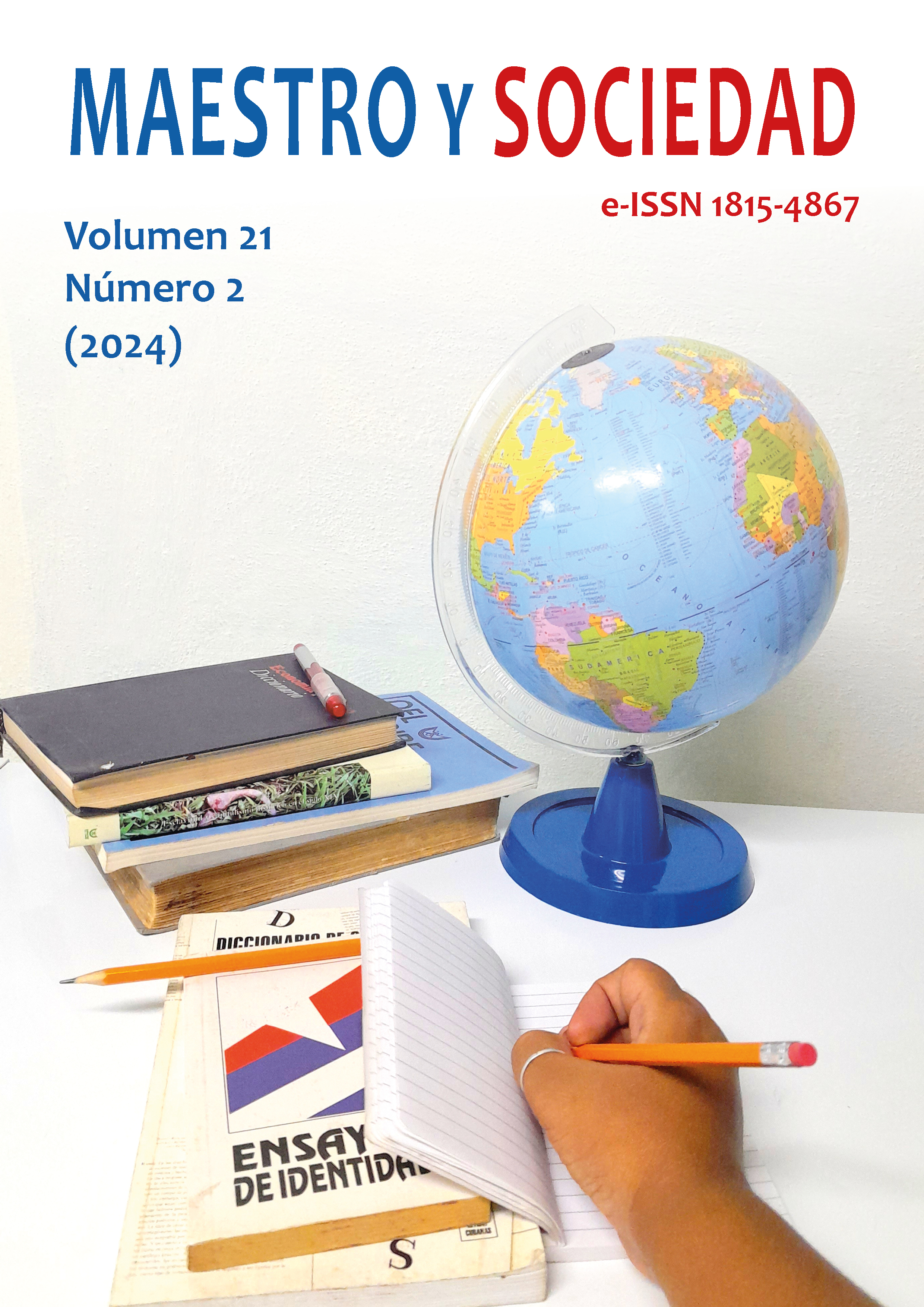The philosophy of the competence-based educational model with a constructivist, research and intercultural approach of the Luis Vargas Torres de Esmeraldas Technical University
Keywords:
educational philosophy; life ethics; decolonial pedagogyAbstract
Introduction: Overcoming the limitations of learning located in the traditional exposition of curricular content and is committed to affirming constructivist, investigative and intercultural processes of generation of innovative and creative knowledge that in turn feed socio-formative processes and transformative decolonial feedback in complexity of the dimensions that are articulated in the plexus of the pedagogical model from the macro level or educational model and the micro level or curricular model. Materials and methods: The scientific methodology of the class assumes the methodology of the holistic-dialectical, systemic, inductive, deductive, in this way the strength of formative research is constituted, whose relational dynamics between concepts integrates the construction of new categories of order qualitatively. superior in the staggering of the spiral of the development of thinking skills typical of the human condition. Results: The philosophy of the model summarizes the ethics that from the teaching performance transcends its moral practice of principles and values that configure the social subject that learns whose praxis becomes a superior quality of the political, a moral commitment that is assumed for the transformation of the individual. and in the community to generate change. Discussion: The philosophy of the competency-based educational model with a constructivist, investigative and intercultural approach channels from its systemic, complex and holistic relational framework a connection that links the young adult subject who builds knowledge of him with his own life. Conclusions: The philosophy of the educational model emphasizes the appreciation of cultural diversity, by assuming an intercultural perspective in practice, which is why the cultural diversity present in the classrooms is recognized and valued. This translates into the incorporation of different perspectives, experiences and knowledge from various cultures in the educational process, which enriches the learning experience and promotes respect and tolerance towards diversity.
References
Canchingre, E. M. (2023). Modelo Educativo por competencias con enfoque constructivista – investigativo – intercultural. Universidad Técnica Luis Vargas Torres de Esmeraldas.
Castillo. A. (2023). “Aproximación discursiva al enfoque socioformativo para la gestión directiva en la educación primaria”. Revista Orinoco Pensamiento y Praxis/ Multidisciplinarias/ 13(17), 40-59.
Cejas, M. F., Rueda, M. J., Cayo, L. E. y Villa, L. C. (2019). Formación por competencias, reto de la educación superior. Revista de Ciencias Sociales, 25(1), 94-101. https://dialnet.unirioja.es/servlet/articulo?codigo=7025815
Hernández, J; Tobón, S; Ortega, M; Ramírez, A. (2018). Evaluación Socioformativa en Procesos de Formación en Línea Mediante Proyectos Formativos. Centro Universitario Educar CIFE. (54)1. 147- 163.
López-Vázquez, R. (2017). La evaluación socioformativa una realidad, como unaoportunidad para transformar escenarios educativos. En L. G. Juárez-Hernández(Coordinador), II Congreso Internacional de Evaluación del Desempeño, Valora. México: CIFE.
Tapia, E. V. (2024). Fundamentos teóricos y epistemológicos para el diseño de modelos pedagógicos constructivistas. Editorial Iblue. Esmeraldas – Ecuador.
Tapia, E.V. y Tapia-Ortiz, L.W. (2023). La práctica pedagógica de colonial para el desarrollo del pensamiento crítico. Editorial Inblue, Esmeraldas, Ecuador
Tobón, S. (2017). Ejes esenciales de la sociedad del conocimiento y la socioformación. Mount Dora (USA): Kresearch.
Published
How to Cite
Issue
Section
License
Copyright (c) 2024 Ermel Viacheslav Tapia Sosa, Náyade Caridad Reyes Palau, María Elizabeth Canchingre Bone

This work is licensed under a Creative Commons Attribution-NonCommercial-NoDerivatives 4.0 International License.
This journal provides immediate open access to its content, based on the principle that offering the public free access to research helps a greater global exchange of knowledge. Each author is responsible for the content of each of their articles.



























 Universidad de Oriente
Universidad de Oriente 